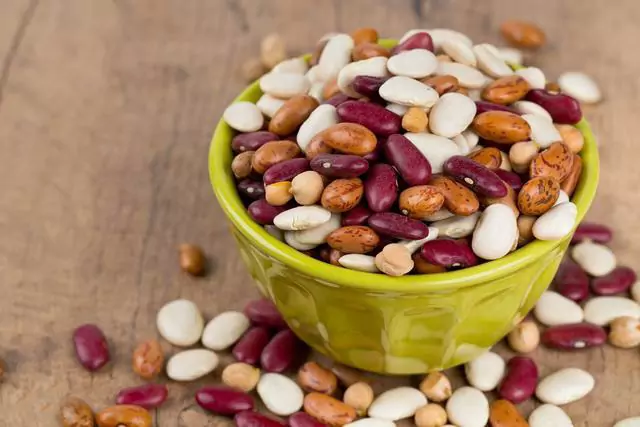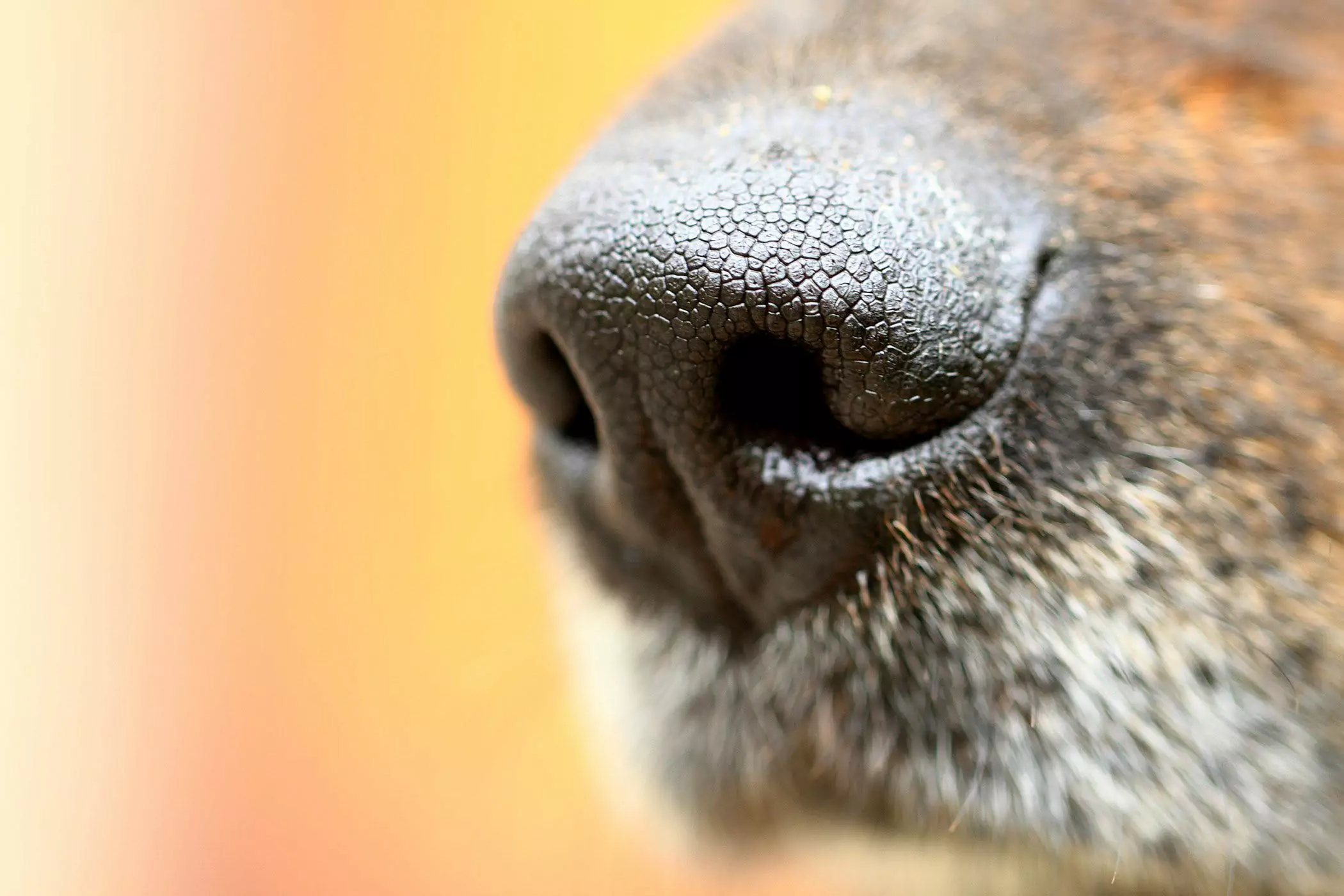Is salt bad for dogs? The bad effects of excessive salt intake in dogs
2022-07-08
In human life, we cannot live without rice, oil, and salt. For cooking, the lack of some seasonings in food will affect the taste, and for the body, certain elements are also essential, such as salt intake. The same is true for dogs, but the amount of salt their bodies can tolerate is different from that of humans.
Many owners will feed their dogs some of the food that humans eat, especially dogs living in rural areas, and many of their food sources are the owner's leftovers. Some owners are also adhering to some misconceptions: people can eat food, why can't dogs eat? Is the dog more valuable than people? But these shovel officials do not know is that dogs can not eat human food is not because they are valuable, but because the leftovers generally contain a lot of salt, day after day, eat a dozen years, the dog will ingest too much and will have a bad impact on their bodies, and even serious cases will cause poisoning, this is not alarming, shovel officials do not take it to heart. The following are some of the hazards associated with excessive salt intake in dogs.
I. Bad effects of excessive salt intake in dogs
Causes skin diseases
The sweat glands of dogs are located on the soles of their feet and tongues, and when they consume a lot of salt in their bodies, it will increase the amount of sweat they sweat, and when the sweat glands of dogs are in a degraded state, they cannot excrete the salt in time, so it will accumulate in their bodies and cause skin diseases, but the amount of salt referred to here is relatively more. Excessive salt intake can cause not only skin disease but also a lot of hair loss in dogs.
Causes salt poisoning
Yes, you heard it right, excessive salt intake can lead to dog poisoning. Usually, salt poisoning in dogs is caused by consuming salty foods, such as salted fish and meat. When dogs consume large amounts of salt, some of the salt is absorbed into the dog's bloodstream, while some of the salt that is not absorbed remains in the dog's digestive tract, which can irritate their gastrointestinal mucosa and cause some inflammatory reactions.
A significant increase in monovalent sodium and chloride ions in the plasma leads to a state of hyperexcitation of the central nervous system. So generally when a dog has salt poisoning, it affects the nervous system and the digestive system. This can lead to a thirst for water, irritability, and drooling, which can be severe enough to cause respiratory distress and eventually death due to heart failure.
Dogs with chronic salt poisoning will generally suffer from loss of appetite, lethargy, depression, and even blindness, and may die of respiratory failure after 2-3 days.
A burden on their kidneys
I'm sure many pooper scoopers know that people should not consume too much salt. Like those pickled products people can not eat too much, let alone dogs? The amount of salt in human food is far more than what the dog's body can handle, and long-term consumption will increase the burden on the dog's kidneys and speed up their kidney failure. Maybe a lot of barbers have to say, the family dog eating human food is nothing wrong ah? Careful people can observe that dogs who eat human food for a long time will lose their hair badly, and the texture of their hair is far worse than those who eat dog food.
II. What about salt poisoning?
There are no specific medications for food poisoning in dogs. When a dog is in the early stages of salt poisoning and is mild, it can be treated with a sodium-depleting diuretic infusion and given some water to reduce the salt level in the body. You can also treat your dog with vomiting and gastric lavage to facilitate the elimination of salt from their system.
The last thing to say is that the pooper scooper should pay attention in daily life, it is best to avoid feeding your dog human food because the general dog food will add some salt, so the dog does not need additional intake. Although the intake of salt also affects the health of the dog but must control the dog's body can withstand a degree, otherwise, it will cause counterproductive effects on the dog's body, and it will not be worth the loss. The first thing you need to do is to prevent your dog from stealing some of the food at home to avoid poisoning them and try to keep it out of reach.

Three: Dogs need salt too
So do dogs need to consume salt or not? It certainly does! There is no doubt about it!
Any living creature needs to consume salt because salt is designed to provide sodium chloride to living creatures, and a lack of sodium chloride can lead to problems with nerve conduction, muscle weakness, etc.
Just like the wild deer or goats in the mountains, they tend to lick the mountain rocks just because there will be some mountain salt precipitated on the rock walls.
So it's not that dogs can't eat salt, it's that they can't overdo it!
Everything must know the point that too much is not enough, and the right concentration of saline is called physiological saline, that is, the same structure as the concentration of our body fluids, and the physiological saline at this concentration can be directly absorbed and used by our body.
The saline with too high a concentration is called brine, which used to be used to order tofu, but if the brine is accidentally drunk, then the organs in the body will fail.
The reason for this is that overly concentrated brine will draw water from normal cells to achieve a balance.
So dogs can not eat human food is correct, because much human food salt is more than the acceptance of the dog, the normal size and weight of people are more than a hundred pounds, while the dog small only a few pounds, according to human cooking habits to the dog to eat, then only a few days the dog will have problems, which lies in too salty.
As for why salt should be added to dog food? Let's just briefly say
1. Adding salt to dog food can improve the palatability of dog food and can make dogs more receptive to dog food.
The dog's sense of taste is very bad, compared to the dog's sensitive sense of smell and hearing, the dog's tongue simply can not be as sharp as humans perceive a variety of different flavors, but weak perception does not mean there is no sense of taste, and the physiological role of salt is to stimulate saliva secretion, promote the role of other digestive enzymes, but also to improve the taste of feed and promote appetite.
However, if the pooper scooper tastes a bite of dog food, general dog food salt is very high and often poor quality, so the pooper scooper can also identify dog food based on this.
2. Adding the right amount of salt to dog food can improve the shelf life of dog food, not easy to deteriorate in the storage process.
The ingredients in dog food are mainly starch, protein, and fat, and these ingredients can easily be used by bacteria as a breeding ground for their growth in a normal environment to give birth to a large number of offspring, which may metabolize some harmful by-products in the process.
But in the salt environment, the growth of bacteria will be suppressed, like raw meat put on for three to five hours will slowly appear smelly, but a pot of cooked roast meat can be put at room temperature for more than ten hours without breaking down.
Dog food generally does not add too many preservatives, so the appropriate addition of salt is important because it can play the role of corrosion insurance.
3. Salt is an essential element for dogs, and not consuming salt for a long time can lead to abnormalities in the dog's body.
Salt can provide physical strength to living creatures, people who do heavy work because they sweat a lot and lose a lot of salt from their bodies, so the food they usually eat will require a heavy mouth because the lack of salt will lead to weakness.
When salt intake is insufficient, the acidity level in the dog's cells will rise sharply, which in turn damages the body's DNA cells and induces cancer.
Dogs can develop muscle cramps and spasms, and the lack and loss of salt can cause the space between polyp cells to shrink, which in turn increases the pressure on peripheral nerves, causing pain in dogs.
In addition to this, hyponatremia and hypochlorhydria can occur, manifested by muscle weakness, nausea and vomiting, headache and drowsiness, painful muscle spasms, neuropsychiatric symptoms, and reversible ataxia.
Therefore, it is true that dogs should not consume salt excessively, but if they are not given salt at all, then it will only harm them.
Normally, all dog food will include the appropriate salt content, so if your dog is eating regular dog food, then there is no need to worry about the salt content, after all, dog food is based on the dog's nutritional formula and blended into a fast food product.
But if the shoveler likes to cook for the dog, then we should pay attention to the correct intake of salt for the dog is required Oh!
Was this article helpful to you?
Other links in this article
Comments

Is a dog's mouth cleaner than a human's? Dogs' mouths need regular cleaning

Can dogs eat beans? Do dogs eat beans for health?

Can dogs eat lemons? Fruits that dogs should not eat more of

Do dogs have nightmares? Are dogs' dreams similar to humans'?

Can dogs eat raw beef? The benefits and drawbacks of beef for dogs

Is raw meat good for dogs? Can dogs eat raw chicken?

Can dogs eat pomegranates?

Can dogs eat ham?Can all types of ham hocks be eaten?

How to give a dog a bath

Can dogs eat kimchi?










